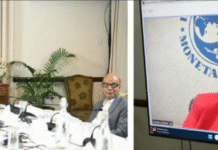Private helicopter service
Published: February 16, 2020 The Financial Express

A number of legal interventions in the offing as identified lately by the private helicopter services may give reason for the sector to feel a little unease. According to officials concerned, the area of the private single-engine chopper service in the country is having a boom time. However, amid this upbeat enjoyed by the helicopter service providers, the issue of mandatory compliance of the regulations being framed should be viewed in a proper perspective. Given the sensitive nature of the service, the issues raised by the relevant authorities are pertinent. A recent FE report shows that the government is getting a move on for framing a series of policies to regulate the country’s privately run helicopter services.
The issue gains relevance from a vital fact: The country’s Domestic Flight Operating Regulations in the Unscheduled Routes-2020 has replaced the earlier rules passed in 2001. The focus of deliberations in the changed circumstance is the rules being worked out that cover the use of elevated helipads or rooftops. The move comes at a time when the country’s private helicopter service has already passed two glorious decades of business, its focus being mainly on medical emergencies and corporate travel. At present travels related to wedding, religious purposes etc. also come under its ambit, despite the prohibitively high charges for the trips. The rent charts require a thorough overhaul.
The country’s private helicopter service activities at present are dominated by a few large business groups. Thanks to their all-out efforts invested in the business, the number of privately run commercial helicopters has risen to 32 from just two in the year 2000. Things had been going fine until the authorities weighed in with restrictions on the single-engine choppers landing on elevated helipads like rooftops in 2010. According to the operators, landing on rooftop helipads is necessitated by the imperative of avoiding traffic congestions that obstruct patients’ admission to hospital on time. As viewed by them, it’s a case for medical emergency. Quite naturally, they look forward to a change in this particular provision and some others. The government reservation about allowing the helicopters to operate on unregistered routes is understood. Apart from security reasons, the relevant authorities suspect smuggling activities thru undetected helicopters. Civil Aviation authorities lay special emphasis on framing of new regulations, which will help check transportation of illegal and smuggled products as well as persons on unscheduled routes. There are other potential hazards like not furnishing the details of a flight in advance. The new rule will require the operators to supply detailed information about their flights 24 hours earlier. The new regulatory measures will also have restrictions on photographing sensitive areas and broadcasting images of major government and private installations or of border areas without prior approval of the authorities concerned.
Taking prior permission of the local authorities for a helicopter flight or night stays should be regarded as a sine qua non. A foolproof monitoring and surveillance network will go a long way in making the services more popular as well as efficient in a number of ways. But in order to achieve that goal, the services’ inherent inadequacies ought to be addressed with all seriousness. A single unwarranted incident can damage the prospects of private helicopter services.









